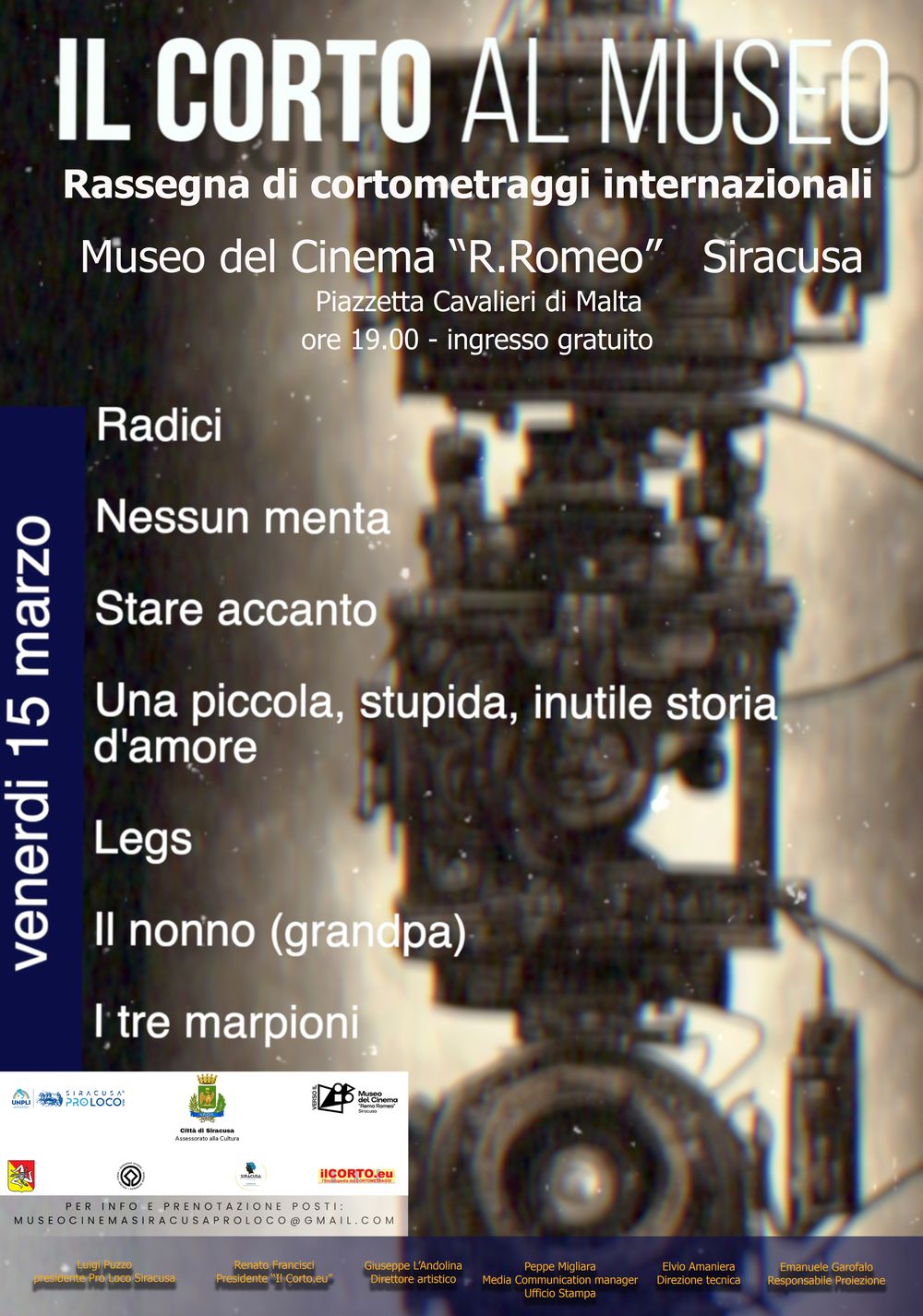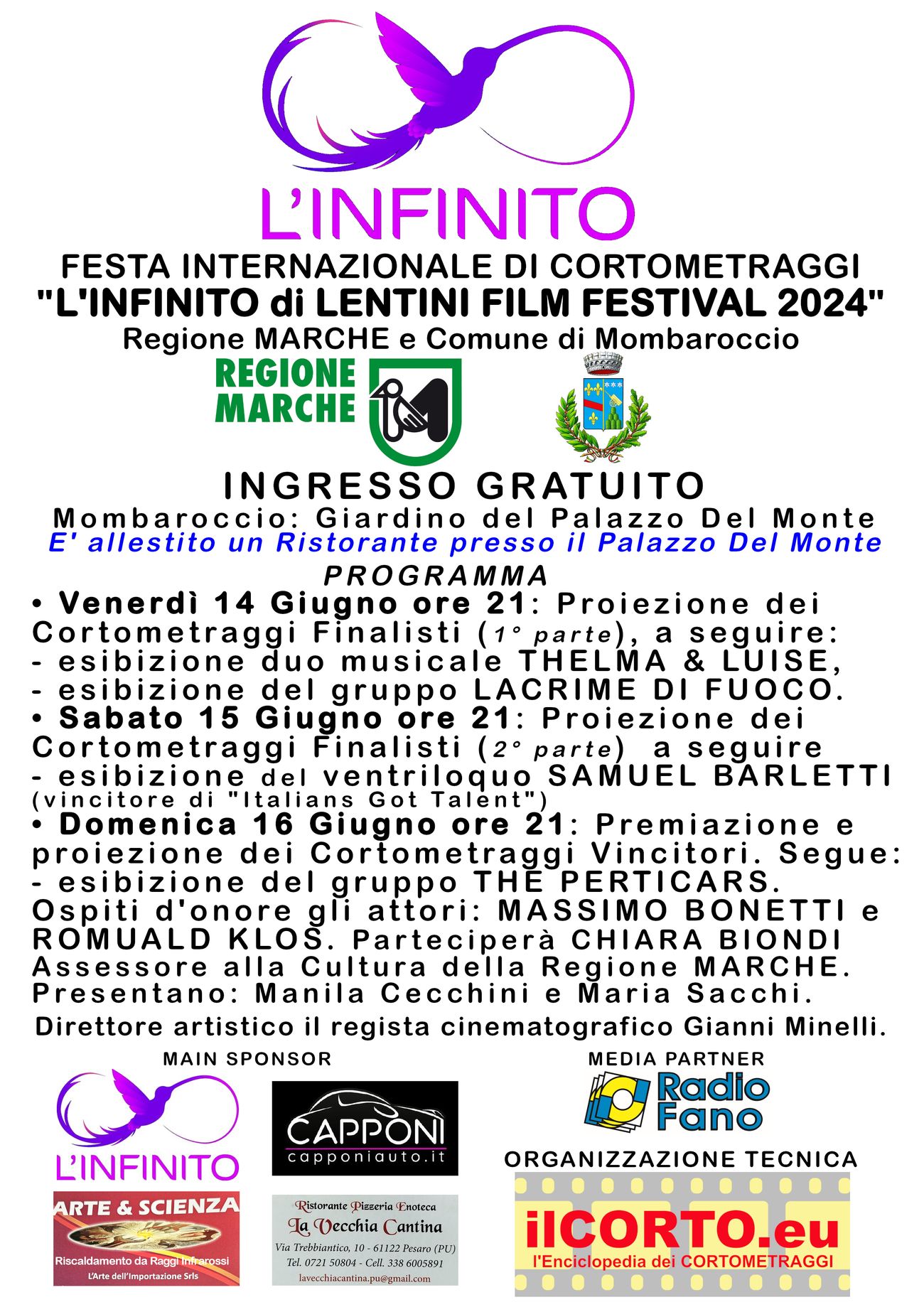Asade è una favola sull’amore e sull’integrazione attraverso la metafora del cinema; sul vero significato del velo, sulle difficoltà a convivere con le proprie origini in terra straniera. E’ un viaggio alla ricerca della comunicazione tra culture e linguaggi, da sempre perno mancante di comprensione e tolleranza.
Asade è una giovane ragazza di origine iraniana che giunge in Italia per completare gli studi. E’ solare ed ha una fervida fantasia che sfoga disegnando tutto ciò che le sta attorno. La prima cosa che decide di fare appena giunta in Italia è levarsi il velo che le copre il capo. Come d’improvviso, la sua vita pare trasformarsi in una favola animata piena di colori pastello e personaggi stravaganti come il buffo ragazzo che incontra per strada e che nella casualità degli eventi le lascia un grazioso pesciolino rosso tra le mani. Sarà il tempo a dimostrare le tremende difficoltà di vivere in una terra straniera dove gli individui sono incapaci di rapportarsi con la cultura altrui, di scavare sotto la sottile parete delle apparenze e dove regna la superficialità delle cose inutili e appariscenti. Asade è una favola sull’amore e sull’integrazione attraverso la metafora del cinema; sul vero significato del velo, sulle difficoltà a convivere con le proprie origini in terra straniera. E’ un viaggio alla ricerca della comunicazione tra culture, da sempre perno mancante della comprensione e della tolleranza.
Asade is a fable to the love and integration; to the true one meant of the veil, to the difficulties to cohabit with own origins in foreign earth. It's a travel to the search of the communication between cultures, from always hinge lacking understanding and tolerance.
ASADE (di Daniele Balboni)
DIALOGHI (dialogs)
SCENA 1
donna -È un bravo ragazzo, figliola.
He’s a good guy, my dear.
Asade -non gli ho nemmeno mai parlato.
I haven’t even ever talked to him.
Donna -Ti ho detto che vi conoscete da almeno 10 anni, è gentile, è un ragazzo rispettoso.
I told you you’ve known each other for almost 10 years, he’s gentle and respectful.
Asade -il problema non è questo.
That’s not the problem.
Voce di uomo al telefono, distante -Basta, devi smettere di viziarla, Mariam.
(man away from the phone) That’s enough, you must stop spoiling her, Miriam.
Voce della donna al telefono: - Adesso è ora di tornare a casa. Devi lasciare stare quei libri inutili. Basta divertirsi.
(woman) It’s time to come back home. Give up those stupid books. Stop enjoying. Stop having a good time.
Asade - Io torno a casa quando mi pare.
I’ll come back home when I want to.
Padre - Come ti permetti di parlare così con tua madre, qua c’è un ragazzo che ti aspetta, Ma cosa ti sei messa in testa figlia mia? Un’occasione così non capita a tutte, questo ragazzo è un dono, per te e per noi.
(father) how dare you treat your mother that way! There’s a man waiting for you here, what ideas are you running away with? Such a chance doesn’t happen that often, this man is a gift, both for you and for us.
Asade -Papà ti prego, ti prego, lasciatemi dare questo esame, devo preparare i documenti, devo finire delle cose e poi, c’è qualcuno che devo vedere.
Please Dad, please, let me take this exam, I have to prepare the documents, get through some other things and then, there’s someone I must meet.
Padre - Ma chi devi vedere? Avevi promesso di cambiare, di diventare una persona responsabile, io e tua mamma abbiamo fatto di tutto per realizzare il tuo desiderio di andare all’estero. Ascolta, tu devi tornare a casa con o senza quell’esame.
Who are you meeting? You promised you would change, you would become sensible, your mother and I have done all we could to satisfy your desire of going abroad. Listen, you must come back home having taken that exam or not.
1° scena con animazioni
Mo dove devi andare? Fa vedere sulla cartina.
(in local dialect) Where do you need to go? Show me on the map.
Mo l’è distante, devi prendere l’autobus 33.
(in local dialect) It’s far from here, you need to take the bus n. 33.
SCENA 4
RAGAZZO (balbetta) Io non riesco a capire, perché le cose devono andare storte, sempre tutte storte, non capisco perché?
I just can’t under stand why things are going wrong, always wrong, I can’t understand, why? After four years Why?
RAGAZZA …si hai ragione… dovevamo smettere prima prima…
You’re right, we should have given it up earlier.
RAGAZZO non è questo che intendo. Non pensi a tutte le belle cose che abbiamo passato?
Come on, I didn’t mean that. Can’t you think of all the things we’ve done together?
RAGAZZA Tipo? Gli ultimi due anni a litigare? Non fai altro che analizzare film muti nei minimi dettagli e non ti accorgi di come cambiano le persone che ti stanno davanti. Io sto male.
For example? Arguing for two years? You’re always analysing your silent films, you don’t even realise how people around you change. I feel bad.
RAGAZZO Non sono film muti, sono Non Sonori e poi…Tu stai male? E quando ero io dentro una stanza di ospedale, tu dove eri? Fuori con le amiche.
It’s not silent cinema. It’s soundless cinema. So you’re feeling bad, but where were you when I was at the hospital? You were out with your friends as usual.
RAGAZZA Basta, prendi la tua roba e vattene.
That’s enough. Get your stuff and go away.
RAGAZZO Ah si è? Allora mi prendo pure Gino.
Oh yes… then I’ll take Gino away with me as well.
RAGAZZA Ecco..ecco bravo, prendi pure Gino, che non è Gino. Gino, è morto più di un anno fa…e lasciami la boccia di vetro di Murano.
Right, good. Take away Gino too. It’s not Gino by the way, you haven’t even realised it. Gino died more than a year ago. But leave the murano glass bowl here.
SCENA 8
ZEINAB Asade Asade…
Asade Asade
ZEINAB Non hai lezione oggi?
No classes today?
ASADE Si è fatto tardi…
It’s late now.
ASADE…. Proprio oggi che comincia il primo giorno del seminario.
The seminar is just starting today.
ZEINAB A cosa ti serve questa lezione di cinema, proprio non lo so.
I just can’t figure out what you need this cinema lecture for.
ASADE Dovevo scegliere una materia facoltativa, almeno è qualcosa che mi piace
I had to choose an optional subject, at least it’s something I like.
ZEINAB Dai corri che si è fatto tardi, preparo io la borsa vai.
Hurry up, it’s late, I’ll get the bag ready for you, go.
ZEINAB In questi 6 mesi che sei stata qui non sei mai arrivata in tempo, voglio vedere come farai in queste due settimane.
In six months you’ve been here you’ve never been on time, I wonder how you’ll make it these last two weeks.
ASADE Dai che ce la faccio
(in Italian) I can make it.
ZEINAB Tieni la borsa
Here’s your bag.
ASADE Ho chiesto altri 6 mesi di studi
I’ve applied for a 6-months study permit.
ZEINAB Cosa? Cosa stai dicendo? Cosa hai detto?
What? What are you saying? What did you say?
ZEINAB L’hai detto ai tuoi?
Have you told your parents?
ZEINAB Mia madre mi ha detto che la tua famiglia è preoccupata per te
My mother told me your family is worried about you.
ZEINAB È da un tanto che non li chiami, vogliono parlare con te.
You haven’t called them for a long time, they want to talk to you.
ASADE Conosci mio padre, certe cose gliele devo dire con calma.
You know my father, I must take my time to tell him certain things.
ASADE Mh, brucia.
Mh, (in Italian) it’s hot.
SCENA 9
RAGAZZO La lavagna per cortesia…Un tenero sguardo, un simbolo: un fiore che vale più di mille parole e poi sfiorarsi e riconoscersi. Il cinema di Chaplin è questo: sconfiggere le apparenze dello sguardo per rivelare la verità stessa dell’immagine.
The blackboard, please….A tender glance, a symbol: a flower worth more than a thousand words, then touching lightly and recognising each others. That’s Chaplin’s cinema: overcoming appearances of sight to reveal the actual truth of images.
RAGAZZO Va bene, si è fatto tardi, continuiamo domani intanto, ricordo per l’ultima volta: per chi vuole approfondire il discorso sul cinema muto…o meglio: non sonoro e partire da un voto più alto con il professore, può passare domani al mio studio per concordare l’argomento della tesina. Grazie e buona giornata.
Ok, It’s getting late. We’ll resume our topic tomorrow. One last thing however. Those of you who wish to delve into silent cinema, or rather soundless, and to start with a higher grade at the exam, they can arrange the subject of their paper with me tomorrow in my office. Thanks to everybody and have a nice day.
Student: professor, we would like to ask...
Professore: oh yes, we’ll talk about it tomorrow.
ASADE si ricorda di me?
Do you remember me?
ASSISTENTE (BALBETTA)S…s…s…ccc…s..s.
y.. y.. ssss
RAGAZZO Signorina, aspetti un attimo.
Please, wait a second.
RAGAZZO: che cosa ci fai qua eh?
What are you doing here?
Ex ragazza: Mi sono rotta di avere sta roba in casa.
I’ve had enough of your stuff in my house.
RAGAZZO: ho capito, la venivo a prendere io la mia roba a casa.
I see but I would have come and get my stuff myself.
EX RAGAZZA: sono passati sei mesi.
Six months have passed.
RAGAZZO: eh ho capito…e poi qua non si fuma, è un’aula universitaria.
I see… but you can’t smoke here, it’s a lecture hall.
EX RAGAZZA: e io fumo lo stesso.
I smoke all the same.
RAGAZZO: ma ti rendi conto…
Can’t you realise it…
EX RAGAZZA: e lasciami… l’hai comprata la boccia per il pesce?
Have you bought the fish bowl?
RAGAZZO: il pesce…il pesce…ah signorina?!?
The fish… the fish! Miss…
scena 11
ZEINAB si può sapere cosa succede qui?
What’s going on here?
ASADE L’ho visto, l’ho visto
I saw him, I saw him!
ZEINAB calmati fammi capire di chi stai parlando,
Calm yourself, who are you talking about?
Asade è lui, insegna cinema, è un assistente
(in italian) It’s him, he teaches cinema, he’s an assistant lecturer
Zeinab Ma di chi parli?
Who are you talking about?
Asade Il ragazzo, quello che era alla fermata dell’autobus…quello che mi ha lasciato il pesciolino rosso
(in Italian) That guy (in Persian) the one I met at the bus stop… (in Italian) the one who gave me the goldfish.
Zeinab E cosa ti ha detto?
And what did he tell you?
Asade Non mi ha detto niente…non lo so, voglio dire, è venuta una ragazza e lui se ne è andato con lei
(in Italian) He didn’t tell me anything… (in Persian) I don’t know, I mean, a girl came and he left with her.
Zeinab E tu signorina perché non gli hai detto niente?
And you, why didn’t you tell him anything?
Asade Vestita così? Sembro uno straccio. E poi Lui le metteva le mani sui fianchi.
(in Italian) Dressed like this? I look like rubbish. (in Persian) And he put his hands on her sides.
Zeinab Se le cose stanno così, non è il ragazzo per te.
If this is the way things are going, he’s not the guy for you.
Asade Dai zeinab, voglio solo sembrare un po’ come le altre. Al posto di criticare, aiutami a scegliere qualcosa tra questi vestiti.
(in Italian) Come on Zeinab, (in Persian) I just want to look more like the others. Help me choose from among these clothes and stop criticising me.
Zeinab Appena sei arrivata ti sei tolta il velo, fin dove vuoi arrivare con questi atteggiamenti? Credi che andando in giro più spogliata attirerai più attenzione?
The moment you arrived you took off your veil, where are you going with your behaviour? Do you believe that by undressing you’ll attract more attention?
Asade Qui non siamo in Iran, anche tu puoi togliertelo quando vuoi, nessuno ti obbliga.
This is not Iran, you too can take it off whenever you want, no one’s forcing you.
Zeinab Se fino ad adesso hai portato il velo perché te lo diceva tuo padre, o per la paura della polizia, allora non hai capito niente.
If you’ve worn the veil till now because your father told to, or for fear of the police, then you’ve never understood a thing.
Asade Non c’entra niente.
That has nothing to do with it.
Zeinab Questo velo ti aiuta a dimostrare ciò che sei dentro e non quello che vuoi apparire. Quella gente che frequenti non capisce niente di tutto questo.
This veil helps you show how you are inside, not how you want to appear. Those people you hang around with don’t understand anything about it.
Asade Stai parlando come i miei genitori, sono scappata da loro e sono finita con te….tu nemmeno lo conosci.
You’re talking like my parents, I’ve escaped from them and ended up with you… (in Italian) You don’t even know him.
Zeinab Tu lo conosci? Lui ti conosce? Se vali così tanto per lui, ti riconoscerà , anche con il velo.
D’you know him? Does he know you? If you’re so worth to him, he’ll recognise you, even with your veil on.
Zeinab A proposito dei tuoi genitori, questa lettera è arrivata da loro.
Regarding your parents, this letter is from them.
SCENA 12
VOCI AL TELEFONO E’ un bravo ragazzo…c’è un uomo che aspetta di diventare tuo marito… Quell’uomo è un dono…Il velo ci protegge dagli stupidi…superficiale “ragazzo”… tu lo conosci?...ti riconosce anche se porti il velo…
He’s a good guy… there’s a man waiting to become your husband… That man is a gift… The veil protects us from stupid men… shallow guy… d’you know him?... He’ll recognise you even with your veil on…
Scena 13B – Animazioni – assistente e Asade col velo
Table on the animation:
Voi? You?
Mi avete riconosciuta? Have you recognised me?
Certamente. Of course.
SCENA 15
RAGAZZA: ma chi è quella ragazza là giù in giù in fondo?
Who’s that girl over there?
RAGAZZO: avanti il primo.
Who’s next.
SCENA 16:
RAGAZZO: mi dica pure..
Tell me.
ah è qui per la tesina…
Oh, you want to talk about the paper.
mi proponga pure un titolo…
Please, suggest your topic.
mi proponga pure un titolo…
Please, suggest your topic.
vuole che le suggerisca io qualcosa?
D’you want me to suggest a subject?
Non ha un argomento che l’ha interessata? Che le piace?
Isn’t there any topic that you are interested in, that you like?
Allora?
What, then?
Senta fuori c’è altra gente eh?
Listen, there are other people waiting outside.
Ma capisce cosa sto dicendo?
Can you understand what I’m saying?
Vuole che parliamo inglese?
Do you want to talk in English?
Signorina? Signorina…
Miss! Miss!
SCENA 17:
RAGAZZO: Si ho preso anche il maglione…Soccia mamma, ci saranno cinquanta gradi all’ombra lì. Dai, ti saluto, adesso ho trovato posto. Si, ti chiamo io, ciao.
Yes, I’ve got a jumper too. Come on mum, it must be fifty degrees in the shade there. I’ll go now, I’ve just found a seat. Yes, I’ll call you, bye.
RAGAZZO: E’ libero questo posto?
Is this seat free?
RAGAZZO: Bello quel pesciolino, dove lo stai portando?
(in Persian) That fish is lovely. Where are you taking it?
FINE
THE END


























































































































































